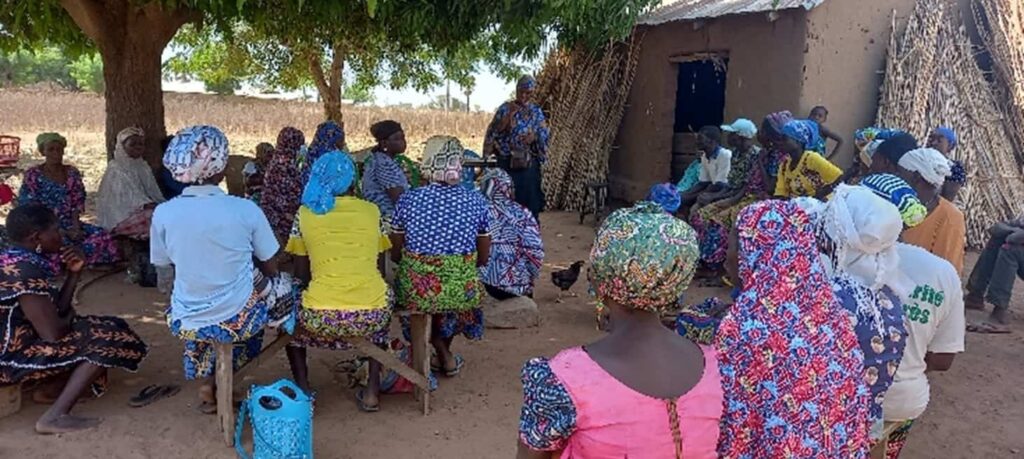The first day Sahadatou Mogore entered the USAID/OTI-supported training on preventing violent extremism and violence against women and girls, she was a shy 34-year-old shopkeeper with little experience in public speaking and leadership.
She was, however, aware of the scourge of violence against women and girls in the town of Cinkassé through her membership of Saayou women’s group, where victims often shared their experiences. “I wanted to know what I could do to prevent this kind of violence, which was making many women and girls leave the community” Sahadatou says.
In Cinkassé, a town in northern Togo bordering Burkina Faso and Ghana, economic and social vulnerabilities – including violence against women and girls, high rates of illiteracy and limited participation in household and community decision-making – expose women to recruitment and manipulation by violent extremist organizations as also witnessed in the Sahel.

Aware of these risks, USAID/OTI’s Littorals Regional Initiative/Programme Regional d’Appui aux Pays Côtiers trained Sahadatou and 80 women leaders, including members from marginalized ethnic groups and eight members of the canton-level Inter-Ministerial Committee for the Prevention and Fight against Violent Extremism, on topics including conflict management, leadership, violence against women and girls and psychosocial assistance.
Despite her shyness, Sahadatou, who was participating in a training in November 2021, played a key role due to her French language skills and her fluency in widely spoken local languages, including Moba, Mossi, and Yanga. She quickly became the go-to person among her peers.
“At first it was difficult because, before this training, I had never played this role; the training allowed me to strengthen my leadership and commitment to preventing violent extremism and countering violence against women and girls,” Sahadatou admits.
Following the training, five women leaders from each canton organized educational talks with peers. With her newfound confidence, Sahadatou volunteered to co-lead the sensitizations in her community. Today, she is a focal point for women seeking knowledge on how to counter violence against women and girls and PVE.
“Thanks to this project, I have become a woman leader and a reference point in my community, I am listened to by other women and local authorities. I discovered that I have a talent as a communicator and mobilize,” she remarks.
Many women are now more aware of their role in the security of their community because of Sahadatou. “We must be careful of the customers we interact with at the market to avoid gifts from strangers or customers in exchange for information about our community,” testified a participant from Kpalmontong village.
Sahadatou has worked with more 700 women and plans to do more in the coming months. “I aim to create a women’s club in my community to work to prevent violent extremism and strengthen social cohesion,” she revealed.